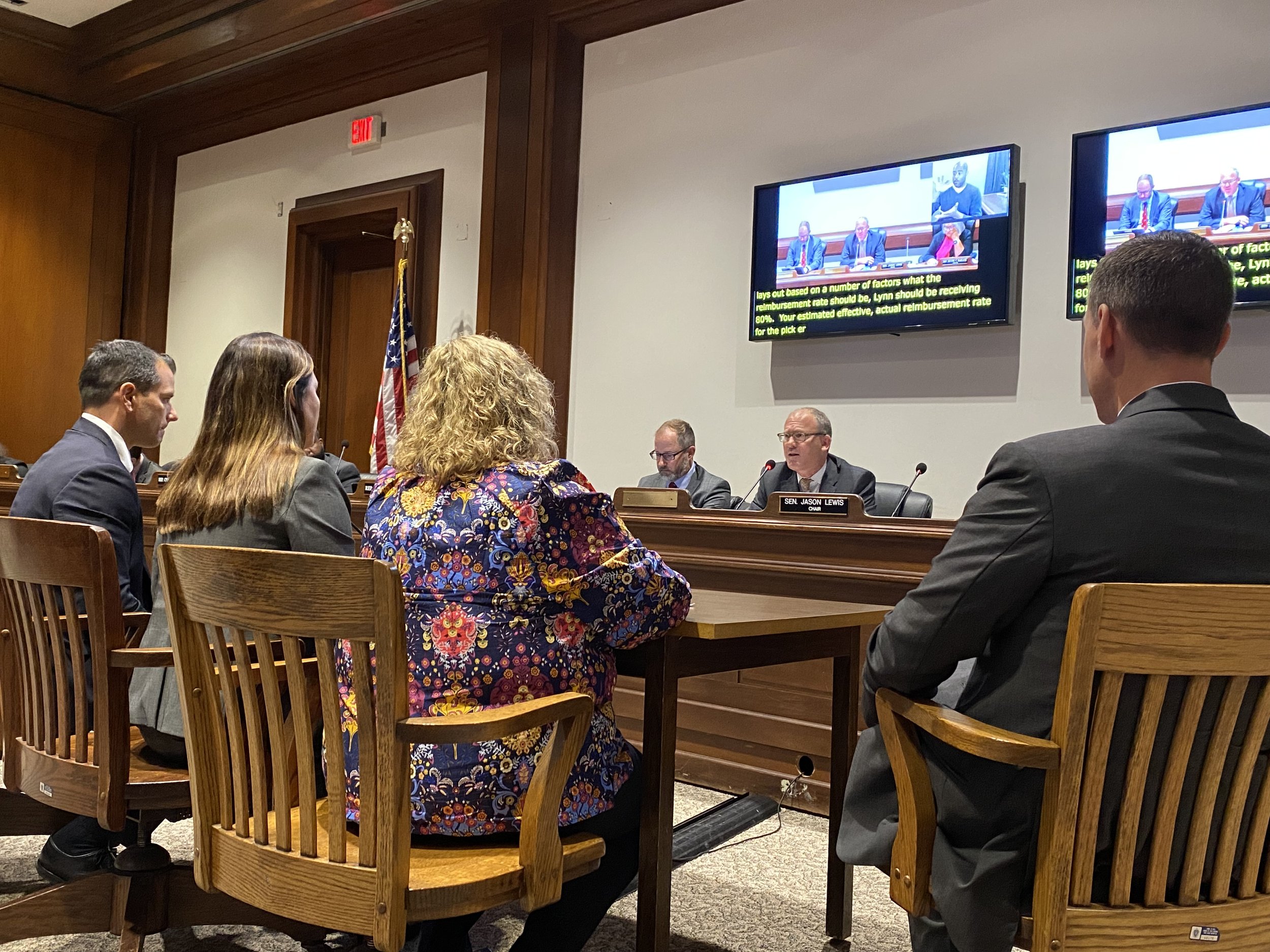School Buildings are Failing Students. Will Legislators Take Action?
Photo credit: Sen. Jason Lewis
On Sept. 18th, the Massachusetts Legislature Joint Committee on Education held a hearing on school finance and construction. Lawmakers heard powerful testimony from teachers, municipal officials, architects, public health experts, and climate advocates. Will this session be the one when legislators take on the hard issues facing our school buildings? Here are the two bills we’re watching closely and think you should support.
Sponsored by Rep. Domb and Sen. Comerford, an Act Establishing a Green and Healthy Schools Working Group and Implementation Plan (H.469/S.242), would establish an interagency working group to develop an implementation plan to realize green and healthy standards in school buildings throughout the state. In addition to passionate testimony from the bill sponsors, the committee heard support from Dorrie Brooks, President of AIA-Massachusetts, Dr. Erika Eitland, a public health expert at Perkins & Will, Johnny McGinnis, Vice President for AFT-Mass, Mark Dyen, an energy efficiency expert and climate advocate, and Sarita Hudson from the Public Health Institute of Western Mass. Sara Ross, co-founder of Undaunted, noted that putting together a plan will help the Commonwealth take advantage of the Inflation Reduction Act, which can fund the transition to clean heat and bring much-needed cooling to our schools.
Also on the docket was a collection of bills aimed at reforming the work of the Massachusetts School Building Authority (MSBA). Rep. Scanlon and Sen. Finegold (H.568/S.278) are joined by Chair Lewis (S.309) in proposing a special commission to study the effectiveness of the Authority. Representative Cahill testified in support of his bill (H.441), An Act Modernizing School Construction, and was joined by Lynn Mayor Jared Nicholson, and Superintendent Dr. Evonne Alvarez. Mayor Nicholson explained how effective reimbursement rates from the MSBA have fallen while the cost of construction has increased leaving projects like the Pickering Middle School on the ropes.
Without adequate support to modernize existing schools or build new schools, students and their educators are stuck with unhealthy and inadequate facilities that now face additional challenges due to climate change. Kim Barry, a teacher in Lawrence and President of the Lawrence Teachers Union, relayed that classroom temperatures exceeded 80 degrees, some getting as hot as 100 degrees, in the heat wave that occurred at the start of the school year. “School buildings need to be cool in the warm weather and they need to be warm during the cold weather,” Barry said.
It’s clear the current system for funding school construction isn’t meeting the needs of many students - and, in particular those in rural or large urban districts.
Jaime Cobham, a policy associate at Undaunted, urged Legislators to seize this opportunity to take stock. “Looking back on decades of experience will allow the new leadership at the MSBA to build on their successes and learn where they can reform policies to better meet the needs of all school districts in a broad, participatory process,” said Cobham.
Massachusetts was recently highlighted by CBS News for the massive disparities in funding for school buildings serving a majority white versus those serving a majority Black student population.
Climate change is already exacerbating these inequalities. With each additional year of inaction, we send another cohort of students into buildings that are an impediment to learning and a danger to their health. Climate justice means standing up for all young people - like those in Lynn and Lawrence - who deserve schools where they can learn and be healthy.
We hope you’ll ask your legislators to cosponsor these bills so that they get voted out of committee and can become law!


